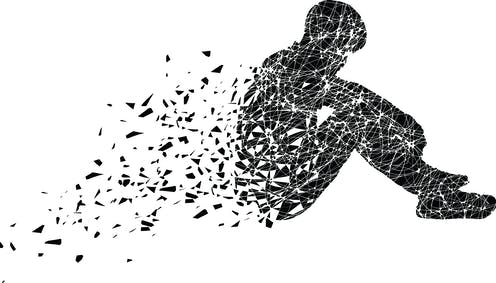Depression is a debilitating disease that affects about 264 million people globally.1 It is a disease the affects the areas of the brain involved in mood, higher-order thinking, sleep, appetite, as well as behavior. It is thought to be the result of impaired neurotransmitters, or chemical signalers, within the brain. There is no single cause of depression, but it is rather a construct of multiple contributing factors relating to genetics, the environment, and adverse life effects.1 The criteria for depression include experiencing these symptoms for the majority of the days in a two-week period:2
- Feeling sad or irritable/agitated
- Loss of pleasure or interest in activities normally enjoyed
- Fatigue
- Difficulty sleeping or sleeping more than usual
- Weight gain or weight loss
- Difficulty concentrating
- Feeling hopeless, helpless or guilty
- Low self-esteem and low self-confidence
- Thoughts of suicide (although this does not present in all cases of depression)
- Symptoms are not due to other conditions
- Symptoms impair functional ability to complete daily activities
Grief can be commonly misinterpreted as depression. Grief is a healthy feeling following the loss of a loved one, the loss of a job, or other events that may cause an individual to feel sorrowful. The major distinguishing factor between grief and depression is sustained self-esteem in grief. The two conditions may co-exist, or a grieving individual may feel transient symptoms of depression, but it is important to note that healthy grieving does not affect the individual’s self-esteem and self-confidence.2
The standard of care for treating depression involves antidepressant medications alongside psychotherapy, also known as talk therapy. An area of effective treatment that is often overlooked is the implementation of exercise interventions. Studies have shown that for mild to moderate cases of depression, exercise is comparable to the use of traditional treatment.3,4 In cases of severe depression, exercise serves as a valuable complementary component to the treatment plan.3,4 This is where physical therapists can play an integral part of treating depression. Many of the characteristics of depression include aspects that make it difficult to exercises such as fatigue, feeling sad and hopeless, low self-esteem, and difficulty concentrating. Working with a physical therapist can add a motivational component to exercise and help with adherence to exercise regimes.
The reality of our world today with the presence of a global pandemic and declining economy has brought on new challenges and stressors which can exacerbate the symptoms of depression. It is important to recognize these strong emotions of fear and anxiety and to cope with them in a healthy way. Exercise can be an outlet to decrease the intensity of these negative feelings while simultaneously improving positive feelings. Physical activity causes the release of endorphins which act on the opiate receptors within the brain and result in a reduction of pain and an enhancement in pleasure.5 Exercise is just one of the many coping mechanisms. The CDC has put out many other resources that can be utilized when coping with stress here:
https://www.cdc.gov/violenceprevention/about/copingwith-stresstips.html
Live Your Life can help you take control of your mental health by providing wellness services along with physical therapy. We offer complimentary consultations via Telehealth to be at the utmost convenience to you. We want to improve your overall wellbeing and have the power to do that with our diversely trained healthcare professionals.

Meghan Hennessy, SPT
I earned my degree in Kinesiology Exercise Movement Science from the University of Wisconsin Madison and I am currently working toward my Doctorate of Physical Therapy from the University of Minnesota Twin Cities. In my time off between college and graduate school, I lived in southern Thailand and taught English to 4-6 year olds and had the opportunity to travel to many neighboring countries. I enjoy yoga, running and fitness classes, as well as walking outside when the weather is nice. In the future, I hope to work in health and wellness and I am excited to have the opportunity to learn more about the field from Dr. Eva Norman.
References
- World Health Organization. (2020, January 30). Depression. Retrieved July 24, 2020, from https://www.who.int/news-room/fact-sheets/detail/depression
- Snow, L., Dr. (2020, July 20). Mental Health. Lecture presented in Pathophysiology at the University of Minnesota Twin Cities, Minneapolis.
- Knapen J, Vancampfort D, Moriën Y, Marchal Y. Exercise therapy improves both mental and physical health in patients with major depression. Disabil Rehabil. 2015;37(16):1490-1495. doi:10.3109/09638288.2014.972579
- Kvam S, Kleppe CL, Nordhus IH, Hovland A. Exercise as a treatment for depression: A meta-analysis. J Affect Disord. 2016;202:67-86. doi:10.1016/j.jad.2016.03.063
- Cafasso, J. (0496, November 02). Endorphins: Functions, Levels, and Natural Boosts. Retrieved July 29, 2020, from https://www.healthline.com/health/endorphins

